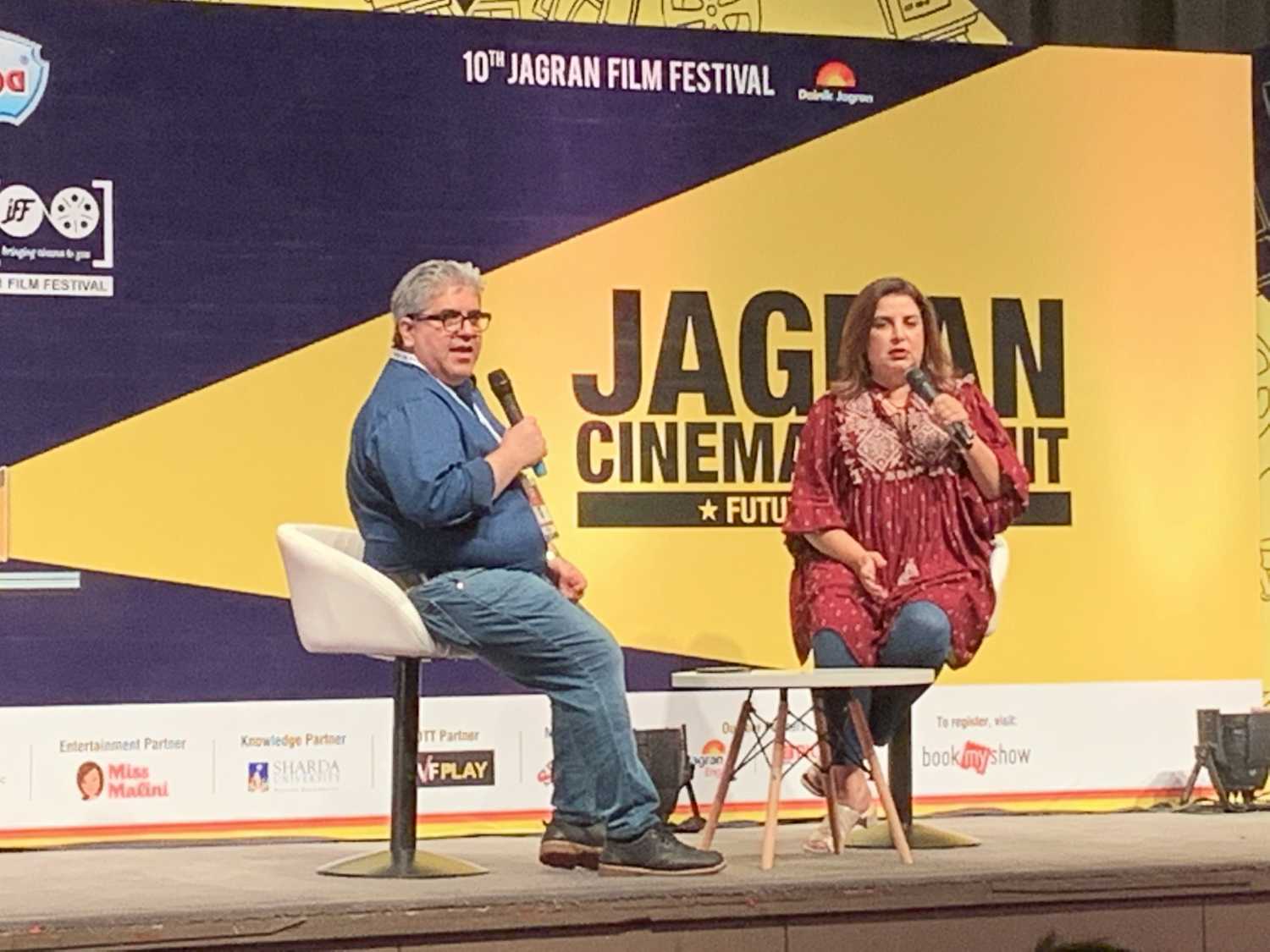At a freewheeling conversation, choreographer-turned-filmmaker Farah Khan spoke about her journey in cinema, while being absolutely mum about her next project.
Everyone should be free to make what they want: Farah Khan on following her heart as a filmmaker
Mumbai - 19 Jul 2019 19:00 IST


Our Correspondent
Just like her films, the no-holds barred conversation with Farah Khan at the 10th Jagran Film Festival, was a frank, fun-filled one where the filmmaker spoke about her journey first as a choreographer and then as a filmmaker.
Reminiscing about her first choreographed song in Jo Jeeta Wohi Sikandar (1992), Khan recalled how from being the fourth assistant director on the film, she got the opportunity to choreograph the song, ‘Pehla Nasha’. She also spoke about the ways in which her early influences shaped her as a filmmaker and pointed out that her working with people like Mansoor Khan, Kundan Shah, Vidhu Vinod Chopra early on in her career lent to the quirkiness that one sees in her films.
Khan also recounted that amongst all her films, the screenplay for Om Shanti Om (2007) was the easiest screenplay that she wrote as the idea came to her while she was working on Andrew Lloyd Webber’s musical Bombay Dreams in London. The film, of course, is one of her most fondly remembered ones along with Main Hoon Na (2004).
Talking about her annoyance at being bracketed off as a woman filmmaker and the stereotyping therein in terms of themes, she said, “Everyone should be free to make what they want. I like making big, commercial films and I think that that breaks the glass ceiling more than expecting women to make certain types of films with limited themes.”
Speaking about the current crop of artistes she said that she would be excited to work with Rajkumar Rao, Varun Dhawan, Hritik Roshan and Ranbir Kapoor. “Today’s actors are very exciting to work with because they are not set and you can mould them the way that you want,” she explained.
Commenting on the ways in which smaller, niche films are finding a wide audience and acceptability, she said, “It’s the best of times because all kinds of films are co-existing. The commercial, mainstream films are co-existing with all other kinds of films.”
Although the discussion had precious little to do with the title ‘Changing Landscape of Indian Cinema’, it informed the audience about the incredible journey of Farah Khan - a filmmaker who has seen lots of ups and downs and remains grounded despite the heady success that she has found.
The New Delhi chapter of the festival will be held from 18-21 July.
Related topics
Jagran Film Festival

